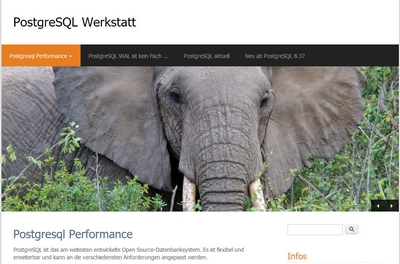Neues vom PostgreSQL Planet
Francesco Tisiot: Introducing Developer Tier for Aiven for PostgreSQL® services
Starting at $8 USD, the new Developer tier includes everything from the Free tier, with extra disk space, preserved uptime for idle services, and Basic support to keep you building without interruption.
Laurenz Albe: The bastard DBA from hell
© Laurenz Albe 2025
Hubert 'depesz' Lubaczewski: Waiting for PostgreSQL 19 – Sequence synchronization in logical replication.
Hans-Juergen Schoenig: PostgreSQL 18: More performance with index skip scans
PostgreSQL 18 brings a couple of performance related features to the table which will help applications to run more efficiently, providing a better and more enjoyable user experience. One of those performance features is called “skip scans”. Most of you might ask yourself at this point: Wow, sounds cool, but what is a skip scan? The purpose of this post is to shed some light and explain how this works, what it does and most importantly: How one can benefit from this feature in real life.
Peter Eisentraut: Waiting for SQL:202y: GROUP BY ALL
Making GROUP BY a bit easier to use is in my experience among the top three requested features in SQL.
Like, if you do
CREATE TABLE t1 (a int, b int, ...); SELECT a, avg(b) FROM t1 GROUP BY a;the column list in the GROUP BY clause doesn’t convey much information. Of course you wanted to group by a, there is no other reasonable alternative. You can’t not group by a because that would be an error, and you can’t group by things besides a, because there is nothing else in the select list other than the aggregate.
Nikolay Samokhvalov: #PostgresMarathon 2-013: Why keep your index set lean
Your API is slowing down. You check your database and find 42 indexes on your users table. Which ones can you safely drop? How much performance are they costing you? Let's look at what actually happens in Postgres when you have too many indexes.
If you're a backend or full-stack engineer, you probably don't want to become an indexing expert — you just want your API fast and stable, without babysitting pg_stat_user_indexes.
Ian Barwick: PgPedia Week, 2025-11-09
This quarter's round of minor releases are expected later this week. Note this will be the last minor release for PostgreSQL 13 .
Seiten
- « erste Seite
- ‹ vorherige Seite
- …
- 6
- 7
- 8
- 9
- 10
- 11
- 12
- 13
- 14

